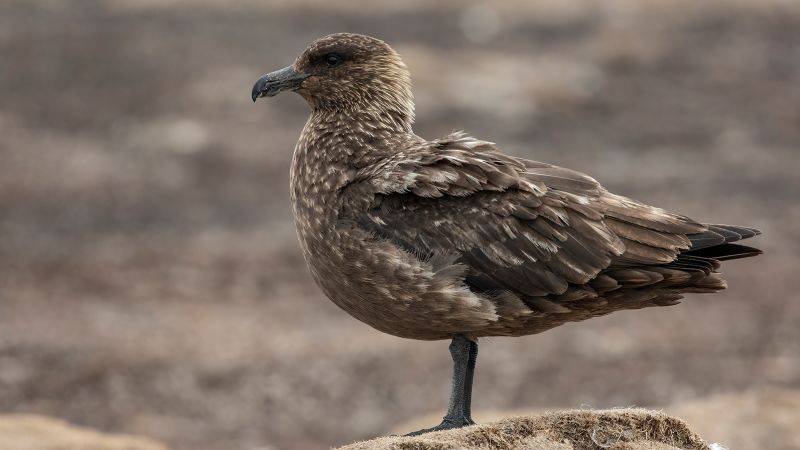(CNN) — Researchers have discovered the first cases of bird flu in Antarctic seabirds, according to the British Antarctic Survey, raising fears the disease will spread rapidly through dense populations of birds and mammals.
“The presence of highly pathogenic avian influenza (HPAI) has been confirmed in a population of brown skuas on Bird Island, South Georgia, the first known case in the Antarctic region,” the British Antarctic Service said in a statement on Monday.
South Georgia is part of the British Overseas Territory located east of the tip of South America and above the main continent of Antarctica. The British Antarctic Service believes the birds carried the disease after migrating back from South America.
In August this year, OFFLU, the global open network of bird flu experts, warned that there was a “significant risk” of the HPAI H5 virus spreading southward from South America, where it was first discovered in October 2022.
OFFLU warned in a report released on August 23 that the disease could spread to Antarctica and its coastal islands “due to the spring migration of wild birds from South America to Antarctica’s breeding grounds.”
The report states that there is a “huge” negative impact on wild Antarctic mammal and bird populations, as “they may be susceptible to succumbing to the virus and their presence in up to thousands of pinnipeds and hundreds of thousands Birds only live in dense colonies, which allows the virus to “spread” efficiently.
According to the Centers for Disease Control and Prevention, avian influenza is caused by a naturally occurring infection in wild waterfowl. Infected birds can spread the virus to other animals through saliva and other body secretions.
OFFLU said Antarctica and its coastal islands are home to “more than 100 million breeding birds, 6 species of pinnipeds and 17 species of cetaceans” and warned of the potential for “efficient virus transmission” in the region.
OFFLU was co-founded in 2005 by the Food and Agriculture Organization of the United Nations and the World Organization for Animal Health, with one of its main goals being to collect data on viruses and analyze disease patterns.
The British Antarctic Survey is responsible for the UK’s national scientific activities in Antarctica and has two research stations on South Georgia, including one on Bird Island, where the confirmed case was discovered.
The unprecedented cases come as some countries have experienced record bird flu outbreaks this year. In Japan, nearly 10 million birds are culled to limit the spread of disease, putting pressure on bird supplies and driving up the price of eggs.

